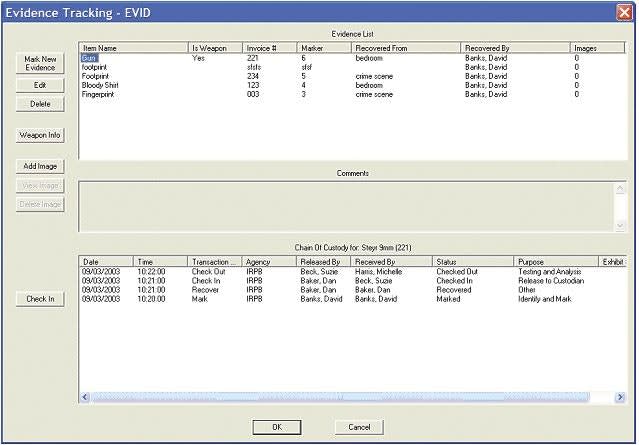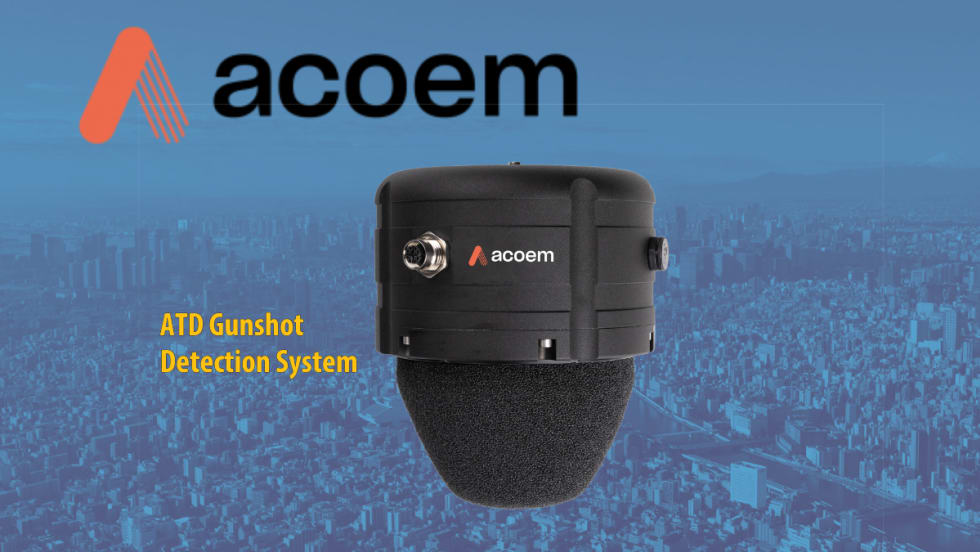Nowadays, technology seems to be providing ways to solve everything in our complicated professional lives. So why not find a technical solution that eliminates slipshod case management and poorly executed investigative processes? That's the idea behind IRP-Solutions Corp.'s new Case Investigative Life Cycle (CILC) Precinct software.
CILC (pronounced "silk") is an enterprise level client-server application that could be the detail-oriented manager you've always wanted for your investigations unit. It may also be the solution for your records management woes and a way to rid yourself of the endless stacks of paper.
Developed over the last four years by a team of software engineers, CILC comes with a built-in law enforcement pedigree. It already knows the basic ins and outs of competent police work thanks to contributions from law enforcement professionals at all levels of government.
And once you decide to implement CILC, IRP can customize the software to give it expertise on the procedures that are unique to your agency. CILC is built on a robust Oracle database engine by an engineering staff that works directly with your organization creating business rules and procedures necessary for your environment.
This customization and IRP Solutions' attention to detail make CILC powerful enough to become your agency's primary computerized investigative management tool. But this application is not just a one-trick pony. CILC Precinct is capable of handling your administrative processes, too. From subpoenas to injury reports, from commendations to disciplinary actions, CILC Precinct can automate numerous personnel tasks and protect the individual officer's right to privacy in all personnel matters.
Here's how it works. At the beginning of the investigative process, CILC creates a "thread" of information for each incident based on the concept that each case is supported by four pillars: collection, analysis, distribution, and presentation.
Realizing that many agencies have multiple contribution points, CILC is designed to be used on desktops, portables, tablets, and PDAs. In other words, CILC goes into the field with as many persons as you need and on any available Windows computer, allowing immediate collection and documentation of information.
The value of having this tool in the field becomes evident in a hurry at a crime scene, as it reminds you about the little details. You know, things like getting the paramedic's name and work schedule, finding out the ambient room temperature at the crime scene, and the other little stuff that tends to be forgotten and later becomes a big headache.
Consider the following scenario. You start your preliminary investigation, and your supervisor decides it's time for you to take the lead. It will be your responsibility to conduct this investigation from its beginning and follow it through to its prosecution. You were fine a few minutes ago but now your mouth seems as if it's full of cotton balls. Your stomach begins to churn. Your boss says he has confidence in your ability. He gives you a pat on the back and reminds you to just follow the "silk thread."
After stepping outside for some air and chugging down some water along with some of those new over-the-counter purple heartburn pills, you take a deep breath and get to work. And because your agency has implemented CILC, you realize that you're going to be OK. CILC furnishes you with a starting point for harvesting information, followed by logical steps for investigating and conducting follow-up work. Finally, it steps you through the necessary requirements for submitting your work to the local prosecutor. It can even be set up to remind you about getting a warrant, scheduling an autopsy, and sending fibers to the state laboratory for further analysis.
Also, CILC gives you backup. Your boss, the one with all that confidence to give you the lead on your first big case, can monitor your work through CILC's built-in security administration. Just think of him as your guardian angel, keeping a mentoring eye on you and the progress of your case. If you stumble, he's there to get you back on the right track. If everything is fine, he'll know his judgment about you was on target.
In addition to its investigative tools, CILC is also useful for first responders. Its "Crime Scene Log" gives first responders instructions on how to maintain an orderly crime scene.
This is a critical need for all agencies. Today's world is going to require more from first responders. Not only will they need their array of criminal codes and street sense, they'll also need immediate information on how to handle incidents involving everything from hit-and-run traffic accidents to terrorist attacks. When used properly, CILC can direct first-responder activities such as crime scene protection, command post setup, performing notifications, canvassing for witnesses, taking statements, and properly documenting identities of those with important information.
Sure, all of this can be done by officers without the aid of computers or CILC. But the benefits of CILC are easily demonstrated. All of the information inputted into this system is properly documented, legible, and uploadable to the server. Also, it can be shared at all levels of your agency without paper shuffling or repetitive typing. This means that units from within your organization can instantly have access to case information.
CILC sounds expensive, what with all this client-server and custom application talk. But don't let that scare you off. IRP-Solutions offers a stand-alone version of CILC Precinct if you're not ready for the full-blown client-server version.
And if you want the client-server version, you may discover that grant money is available to help fund its implementation. IRP has an on-staff grant writer who can help you with this process.
In addition, IRP may help you. The company is interested in developing reference agencies for itself, and that's a win-win for everyone.
A 25-year police veteran, Bob Davis currently runs the San Diego Police Department's computer lab.












